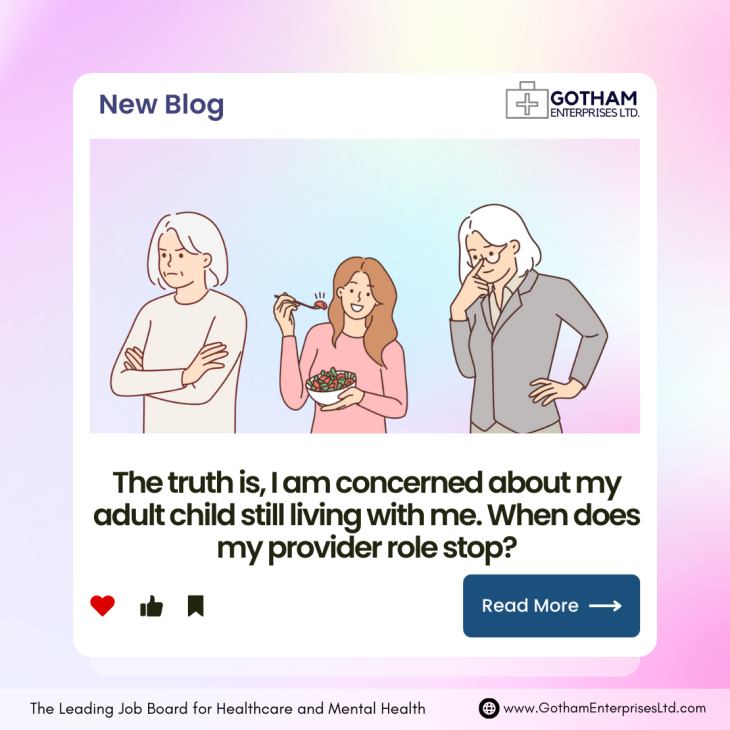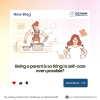Recent Posts
- What habits can I start tomorrow that will improve my life?
- "A healthy mind in a healthy body," they say. But what if I am struggling with my eating habits?
- What subtle habits spoil my mental health without me knowing it?
- How much do we need to be really happy?
- Lonely, donwcast and burned out: Should like always be this way?
Most Popular
The truth is, I am concerned about my adult child still living with me. When does my provider role stop?

Ah, parenting! When done right, it must be one of the most fulfilling roles any person could have. But when does the role of being a parent eventually cease? After providing for the child’s safety, care, guidance and preparing them for a fruitful adult life, does being a parent then end?
For some parents, especially parents of Millenials, those who were born in the early 1980s to mid 1990s, their parenting role of providing some of their children’s needs may extend to several years more.
In fact, according to a research, half of surveyed parents expect their children to continue living with them for two more years, and almost 1 in 5 expect them to do so for an additional 5 years.
This inability of Millenials to loosen their parent’s support upon adulthood, to continue receiving housing from their parents and to be unable to support themselves has received the term, “failure to launch.” And alarming as this might sound, both parents and their adult children are experiencing a crisis and stress that have never been experienced yet in older generations.
Factors to this crisis of Failure to Launch
- The economic situation postpones detachment.
According to studies, Millennials are still experiencing the aftereffects of the Great Recession of 2008 and it is slowing them down from adulthood milestones that are expected by society at their age. Compared to 2014, there was a 15% increase in the number of people going home to their parents to live there in 2015. Not being able to buy their own homes for economic reasons is the biggest factor for this.
- Psychological reasons also play a role in launch delay.
Despite being better educated and engaged in the workforce compared to older generations before them, Millennials experience the psychological harm of a worsening job market, and increasing joblessness that affects their hope for the future.
Parents of Millennials now face a unique challenge. To help or to detach?
- Enabling
Enabling is defined as attitudes of parents that block the child’s ability to answer for their own behavior. This can show up as being overprotective and being controlling which aims to protect the child from pain or from making further errors. When done by parents, the child fails to learn responsibility, accountability, control of self, independence, and problem-solving behaviors.
- Helping or Empowering
Empowering creates an environment where parents allow their child to make their own decisions including mistakes, and allow them to face the consequences. It involves helping the child develop the appropriate attitudes and skills to be able to make informed choices.
How can a parent part with their provider role with love?
- Set realistic expectations and explain consequences
The first step to make is to recognize that there is a crisis situation. Talk with your child that although help will be given to them, they are also required to adopt a proactive attitude to help themselves.
Setting the tone of personal responsibility to the child empowers them to desire problem-solving behaviors. Also working with the child on setting a clear deadline when the help would be removed allows them to choose to act or not and face the consequences.
- Face the situation.
Having an open conversation on the reasons for the situation and acting upon solutions takes the child closer to finding independence. If the reason is an economic one, assess and brainstorm with them possible job opportunities. They might need your insight and encouragement.
Avoid stigma. Older generations who are not aware of economic and psychological reasons for failure to launch may be a source of stigma. Communicating without shame to others who might ask expresses support to the child. One way to develop healthy coping mechanisms is to work with professionals to help with this particular situation. They can be Licensed Family Counselors or Therapists. They are adept at working with family systems and can help you navigate failure to launch.
- Let the child assume the responsibility.
This is letting go with love. Trust that the child has instincts to become independent as soon as possible and supporting them while they do it without encroaching on their growing independence is key. Also check and assess yourself whether what you are doing are enabling or helping behaviors. Make adjustments when you find yourself falling into the trap of enabling.








Comments